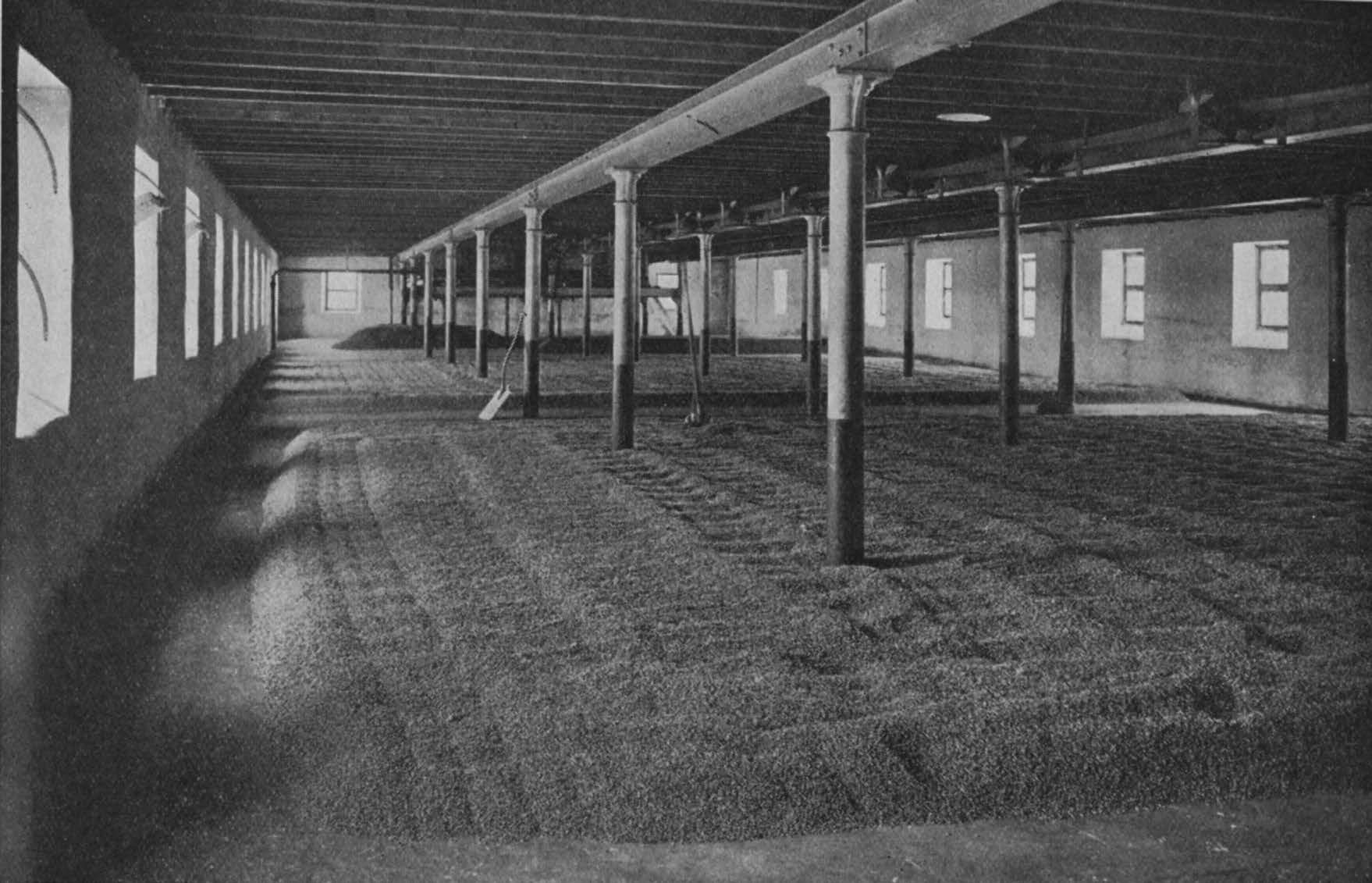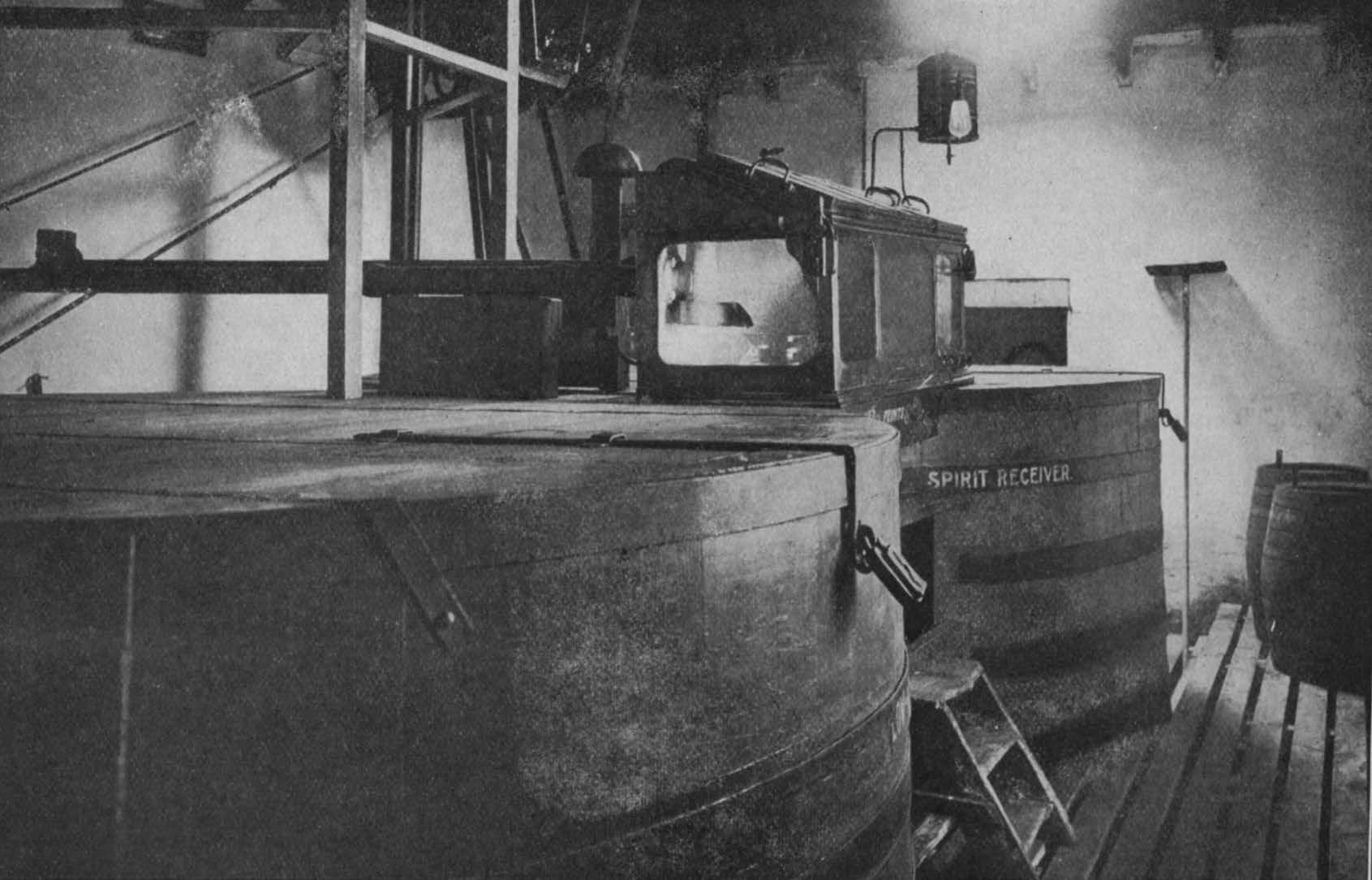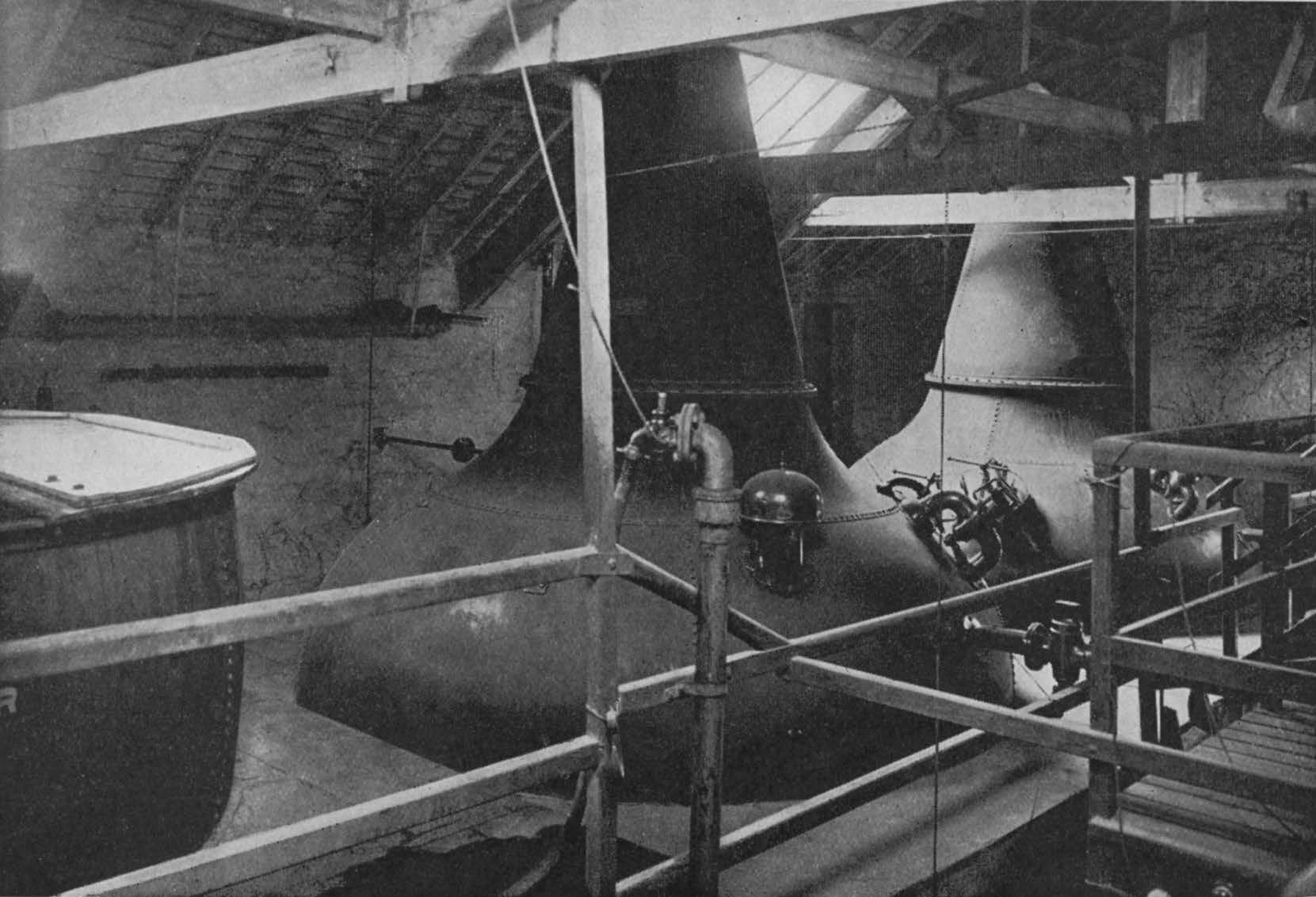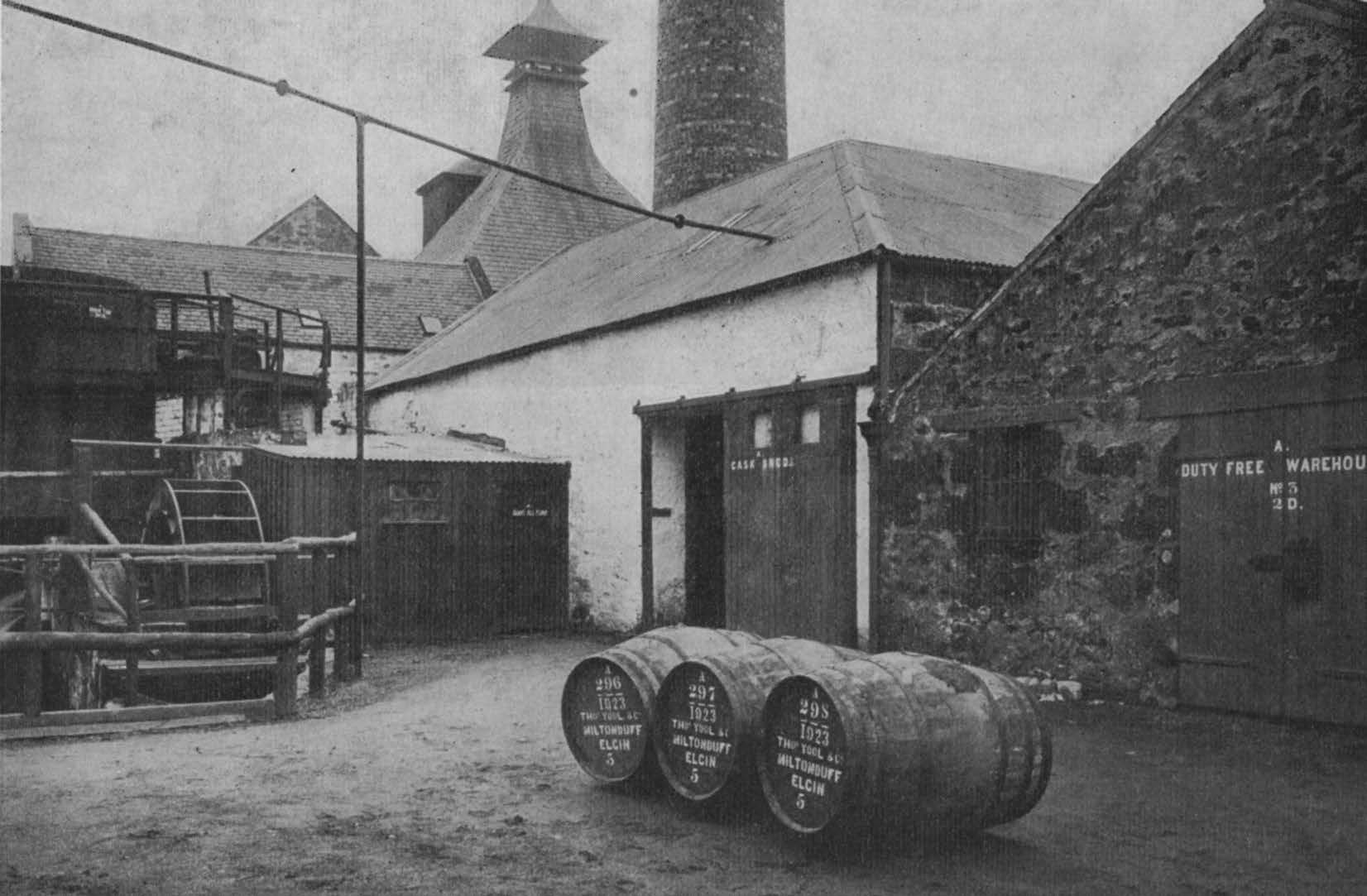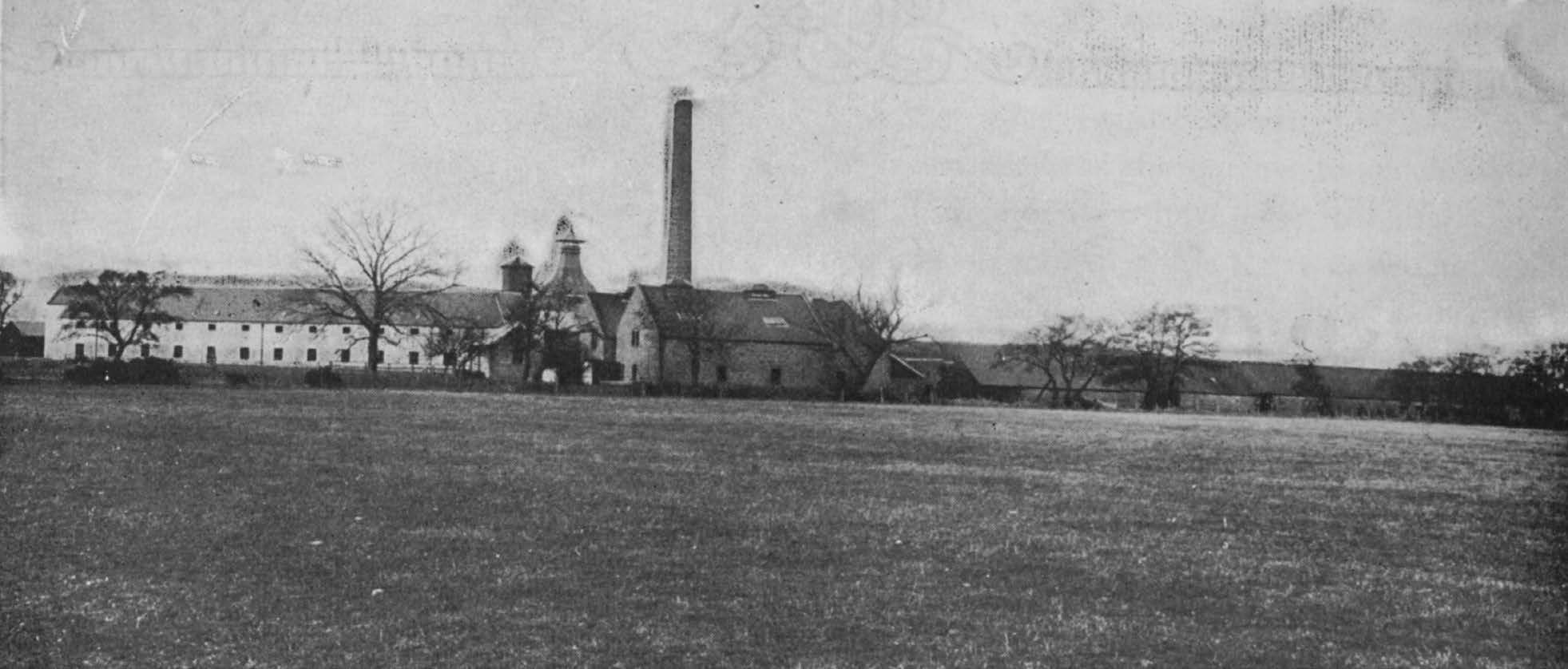XLIII
Milton Duff Distillery, Near Elgin.
February 14th, 1924
Milton Duff Distillery lies three miles west of Elgin in a neighbourhood that has an interesting story. In a wooded valley near the distillery stand the romantic ruins of the mediaeval Priory of Pluscarden, founded in the year 1230 by Alexander II, who installed there a community of monks. According to their constitution, authorised by a Bull of Pope Innocent VII., these monks were supposed to lead a solitary life of strict self-denial, but in the middle of the 15th century a band of Benedictine monks replaced them and soon made the district famous for strong Ale brewed from the Black Burn which now supplies the water sued in the manufacture of Milton Duff Whisky. There is no doubt that the discovery of the virtues of this water by the monks in the Middle Ages led gradually to the extensive smuggling for which the district became notorious in later times.
The distillery is linked up with an old ceremony that is supposed to have taken place on the actual site of the present buildings. On New Year’s Day the Benedictine monks were accustomed to bless the waters of the Black Burn in the hope that a merciful Providence would grant them a good brewing season. Attended by his Priors, Palmers, and Priests, the aged Abbot of Pluscarden usually knelt on a stone by the edge of the burn during this performance, and what is reputed to be this very stone was, until some thirty years ago, built into the maltings of Milton Duff Distillery. The scene, be it noted, strongly suggests what probably happened many a time in the rites of the Ancient Druids. It is extremely interesting to find how time and again we come upon traces of the work and influence of the old monks in the several departments of the Wine and Spirit trade. Investigations into the doings of the old ecclesiastics, their habits and religious customs, their discoveries and inventions show what deep and penetrating thinkers they were, whether one studies them in their monasteries in sunny France or Italy, or the more rigorous climate of the north. But this aspect of the subject is being dealt with elsewhere in these columns, and we must perforce proceed.
Established in 1824, the distillery is now owned by Mr. Wm. M. Yool (trading as Thos. Yool and Co.), who succeeded his father in 1914. The offices, including a small laboratory for research work, are in Elgin.
The maltings comprise a spacious barley loft and malting floor, and after elevation from a hopper of 30 quarters’ capacity on the ground level the gain is steeped in two steeps of a similar capacity. There is a wire-floored kiln with a patent regulator for controlling the furnace and a two-roller mill for grinding the malt. The driving force is provided by a water-wheel in the Black Burn, which runs through the grounds of the distillery, with an up-to-date oil engine as an auxiliary. One thousand bushels are mashed, yielding a Whisky output of over two thousand proof gallons, and four grist hoppers feed the mash-tun. In the tun-room fermentation is carried on in four wash-backs fitted with canvas screens for restraining the “head” of the wash.
A large heating copper and two stills, all furnace-heated, occupy the still-house, and the larger still holds 4,000 gallons of wash. Warehousing accommodation is extensive, and 700,000 gallons of Whisky have frequently been held in bond. Arrangements are now being made to enable burnt Ale, spent lees, and steepings to be pumped up to the hills near the distillery.
Interesting remains of the original distillery can be seen in the cask store, a building which once contained the whole distilling apparatus. A tiny room in the corner of the building was formerly the office used by three Excise officers, and here one can see the “strong-box” where the keys of the warehouses were kept, and a secret panel in the white-washed wall behind which these virtuous officials stored their private supply of “Milton Duff.”
In every essential the distillery is up to date, and the buildings are all lit by electricity.
Images © The British Library Board
